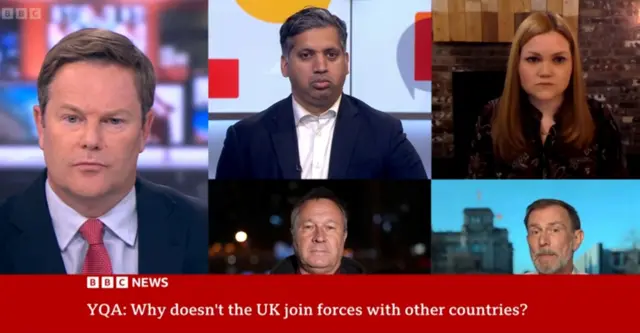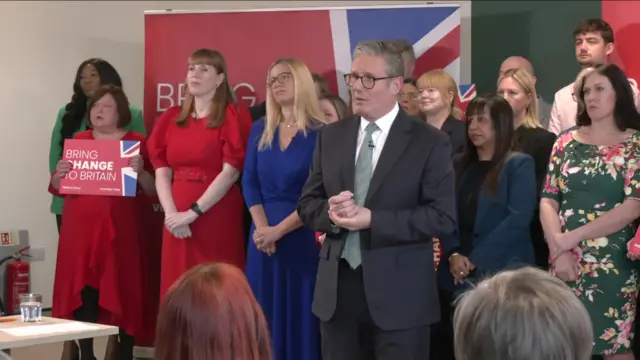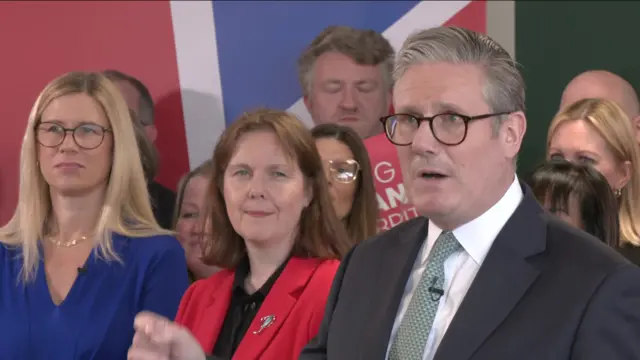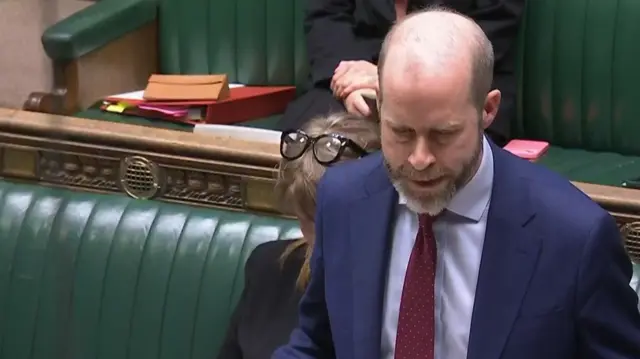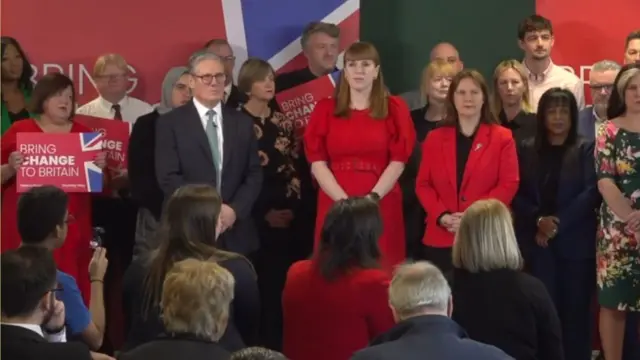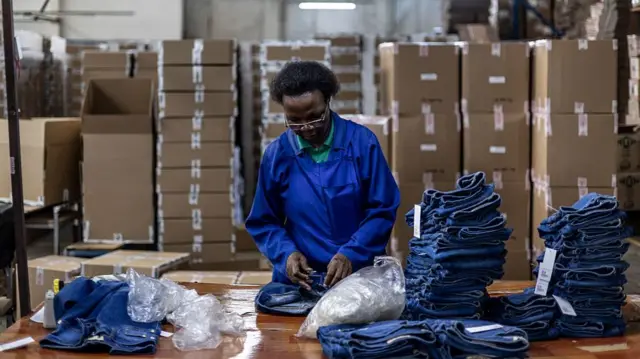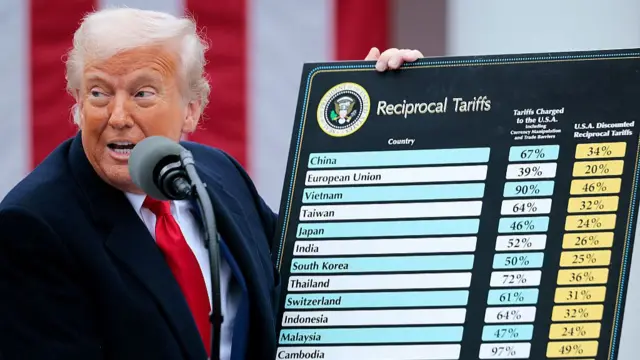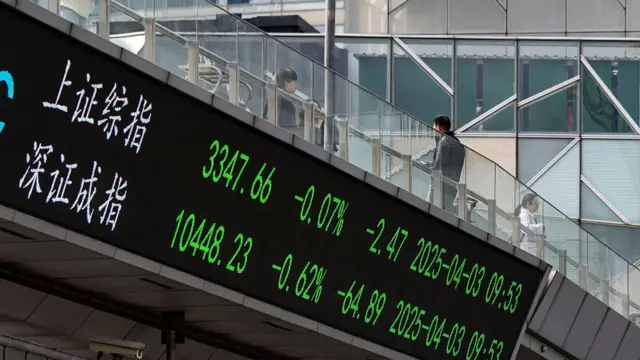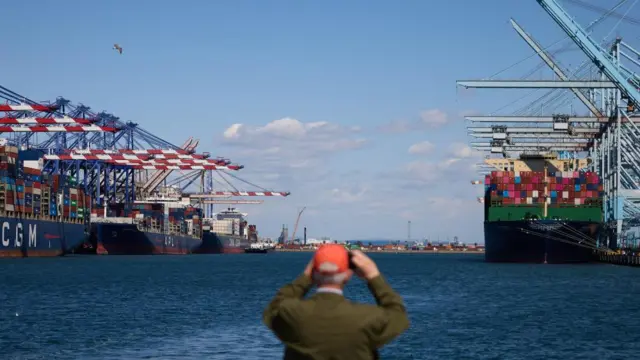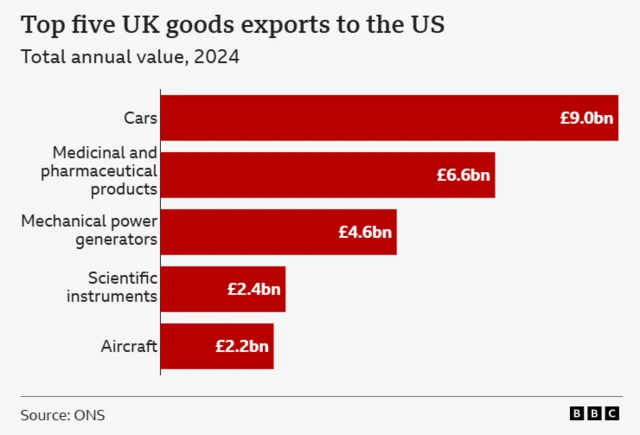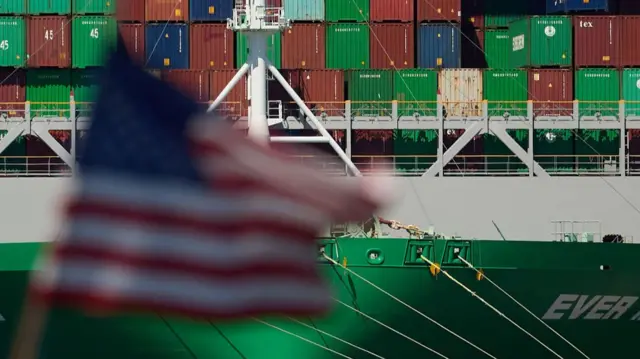
The UK is toughening up its stancepublished at 12:52 BST 3 April
 Faisal Islam
Faisal Islam
Economics editor
The announcement from Business Secretary Jonathan Reynolds in the House of Commons earlier is a big deal.
It’s a toughening up of the UK’s stance towards the new American tariffs announced on Wednesday.
While we knew some official work had been done, the government just did not want to go anywhere near it - and business groups have largely backed the "don’t provoke Trump" strategy.
A key consideration now is whether the 10% universal tariff really is negotiable for anybody.
While Reynolds suggested it might be, White House officials seemed to suggest yesterday that this part of the package reflected a general emergency that would take some time to unpick.
UK minister announces consultation on possible retaliatory tariffs against US
